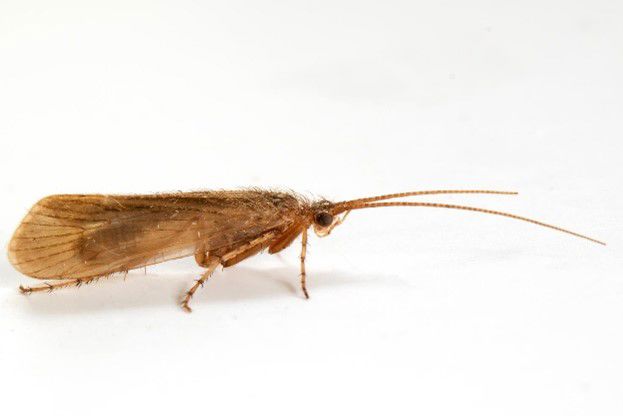Extinct species found in Wales

A species of caddisfly, thought to have been extinct in Britain since 2016, has been found during a species survey at Cors Goch, Anglesey.
Natur am Byth (NaB), Wales‘ flagship species recovery programme, conducted the survey in partnership with RSPB and North Wales Wildlife Trust to record the caddisfly species living on the wetland habitat.
Surveyors deployed light traps on the fens during July and August, specifically looking for one of the NaB target species, Limnephilus tauricus. They were delighted to discover that the light traps had caught a species of caddisfly that is even rarer, Limnephilus pati.
Caddisfly experts confirmed the identification, making Cors Goch one of only 3 places in Britain where this species has been found since it was presumed extinct in 2016. The other sites being Market Weston Fen in Suffolk and Eochar, in South Uist, Scotland.
This caddisfly species needs an environment with very clean, calcium-rich water to survive. The habitats where they are found are often some of the most diverse in Britain but are at risk from drying out and the impacts of agricultural intensification.
The adults of this species fly from spring to early August whereas their larvae are aquatic, living amongst the roots of dense vegetation of their wetland habitats.
Cors Goch is also home to two of NaB’s target species, The Clubbed General Soldier Fly, Stratiomys chamaeleon, and Dwarf Stonewort, Nitella tenuissima, another two species that rely on clean, calcium-rich waters to survive.
Clare Sampson, Natur am Byth project manager for RSPB, said:
“Anglesey is the only known place in Wales where you can find this unique caddisfly and it was a delight to find it at Cors Goch along with a number of other species that indicate clean water and a rich habitat.
“Caddisflies survive by being masters of disguise; the brown adults blend into the vegetation, while the larvae live inside cases that they camouflage with stems, sand and seeds. Discoveries like this prove that there are always exciting finds in nature, and they can be found right on your doorstep.
“This incredible discovery shows why consistent surveying is such an important element of conservation work. By gathering data on our most at risk species and their habitats we can focus our work where it’s needed most and ensure their survival now and into the future.”
NaB, with funding from the National Lottery Heritage Fund, works across Wales to improve habitats and minimise threats to 67 target species. You can find out more about the work being done by the programme and its partners here.
